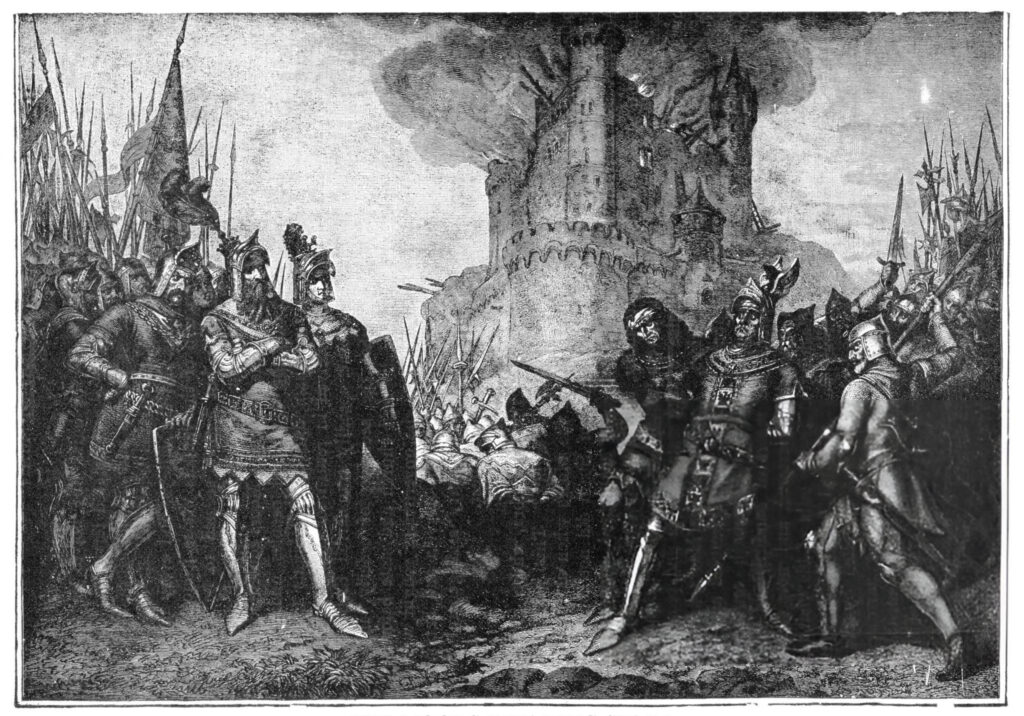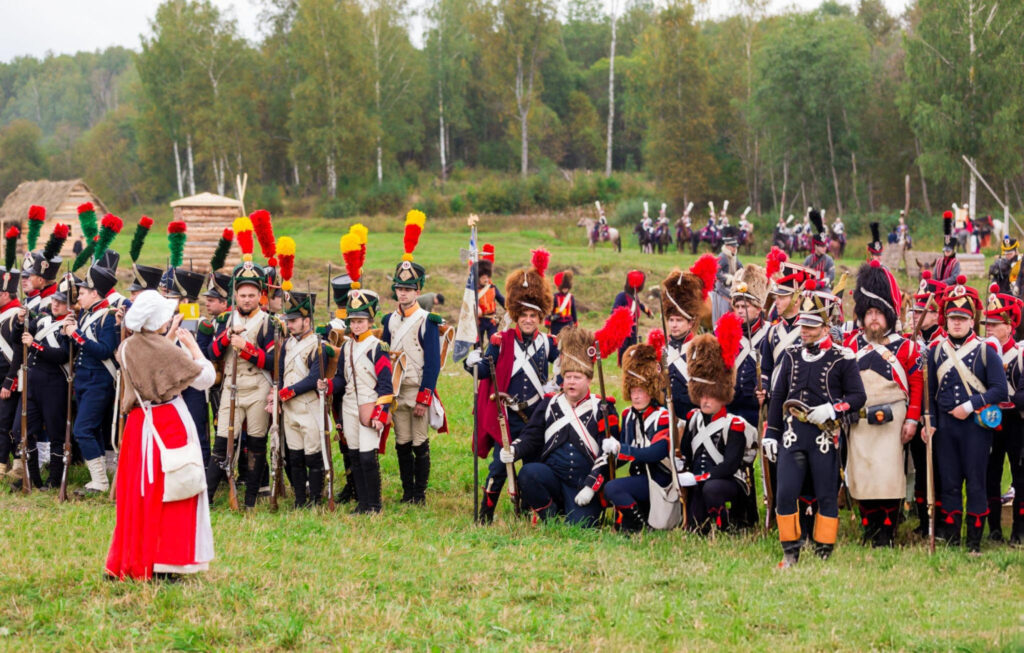Introduction
The Barons’ Wars were two big fights in the 13th century. They changed medieval England’s politics and society. The wars were about power struggles between the king and barons, leading to new ideas in government.
These wars lasted from 1215 to 1267. The first was about the Magna Carta. The second was a fight for control over England. They show how democracy started and how government, law, and society evolved.
The First Barons’ War (1215–1217)
Causes of the First Barons’ War
The First Barons’ War started because King John was very unpopular. He taxed too much, took land without reason, and ignored his barons’ rights. This made many people angry and led to the Magna Carta in June 1215.
The Magna Carta was a big deal. It tried to stop the king from being too powerful. But John didn’t agree to it, which made the barons angry and start a rebellion.
Key Figures

- King John – His bad rule and ignoring baron rights started the war.
- Robert Fitzwalter – A leader of the rebellion, Fitzwalter got nobles to fight against John.
- Prince Louis of France – Louis, the French king’s son, was invited by the barons to be their king.
The Battles of the First Barons’ War
The barons didn’t want to fight at first. But John wouldn’t agree to the Magna Carta. So, they had to fight. By 1216, Prince Louis of France came with an army and was made king in London.
This made the war even bigger. It was now a fight between England and France too. The loyalists won, and John died in October 1216. His son, Henry III, was crowned, and peace was made with the Treaty of Lambeth in 1217. This treaty made Prince Louis leave, gave back land to the barons, and made the Magna Carta law.
Outcomes of the First Barons’ War
The First Barons’ War showed the king’s power was limited. It made the Magna Carta important. This document was key for future reforms and is still important today.
The Second Barons’ War (1264–1267)
Causes of the Second Barons’ War
By the mid-13th century, Henry III was seen as ineffective, just like his father. His foreign policies and spending put England in debt. The English barons were upset because he favored foreign nobles over them.
In 1258, a group of barons, led by Simon de Montfort, forced Henry to accept the Provisions of Oxford. This reform aimed to give more power to a council of barons. It also set up a framework for regular parliaments. But, the provisions were later canceled, leading to the Second Barons’ War.
Key Figures
- Simon de Montfort – Often called the father of the English Parliament, Montfort emerged as a central figure, advocating for a more balanced governance structure.
- King Henry III – His ineffective rule and inability to adhere to the Provisions of Oxford made him a target of the baronial cause.
- Prince Edward (later Edward I) – Initially ambivalent, Edward became an active and decisive leader on the royalist side, ultimately defeating Montfort.
Major Battles and Events of the Second Barons’ War
The Battle of Lewes (1264)
The Battle of Lewes, fought on May 14, 1264, was a decisive victory for the barons, led by Simon de Montfort. Henry III and his son Prince Edward were captured. Montfort then controlled the kingdom.
Montfort used this victory to convene a parliament in 1265. This parliament included not only barons but also commoners from major towns. This was a groundbreaking step toward a representative government.
The Battle of Evesham (1265)
After the victory at Lewes, Montfort’s position became precarious. Prince Edward escaped captivity and regrouped the royalist forces. In August 1265, they won a decisive victory at the Battle of Evesham. Montfort was killed in battle, and his forces were annihilated.
The Outcomes of the Second Barons’ War
The Second Barons’ War showed the strength of the baronial movement and the growing influence of parliament. The war ended with a royalist victory but changed governance. Henry III reasserted control but couldn’t rule with absolute authority.
The parliament of 1265 was a precursor to the English parliamentary system. It marked the start of a shift towards a constitutional monarchy. This system limited the monarch’s powers by law.
The Long-Term Impact of the Barons’ Wars

The Barons’ Wars set a precedent for limited monarchy and helped establish the English parliamentary system. Over time, the legal and constitutional reforms from these conflicts became key to English governance. They championed representative government and the rule of law.
- Advancement of Parliamentary Government: Simon de Montfort’s ideas about representation grew. By the end of the century, Parliament became a key part of English government. It included voices from nobility, towns, and counties.
- Limitation of Monarchical Powers: Wars showed English kings couldn’t rule alone. They had to follow the law. This idea, in the Magna Carta, is key for constitutional governments today.
- Inspiration for Future Legal Frameworks: The Magna Carta and Provisions of Oxford shaped legal standards. They showed the power of written laws to stop abuse. These ideas influenced the U.S. Constitution and the Universal Declaration of Human Rights.
- Legacy of Simon de Montfort: Montfort, though defeated, is a key figure in English democracy. His parliament idea inspired future generations. It helped create a more representative system of governance.
Conclusion
The Barons’ Wars were more than fights for power. They were about authority and accountability, and the rights of people. These conflicts raised important questions about power, limits, and people’s roles in government. These questions are still relevant today.
The Magna Carta and the start of parliamentary assemblies came from these wars. They changed England from a feudal monarchy to a constitutional state. These wars are a crucial part of democracy’s history, showing the power of resistance and reform against tyranny.
In the end, the barons fought for their rights but helped shape broader principles. Their actions influenced not just England but democracy worldwide. The Barons’ Wars marked a significant step toward a more balanced and just system in England. They are not just historical events but milestones on the path to democracy.
